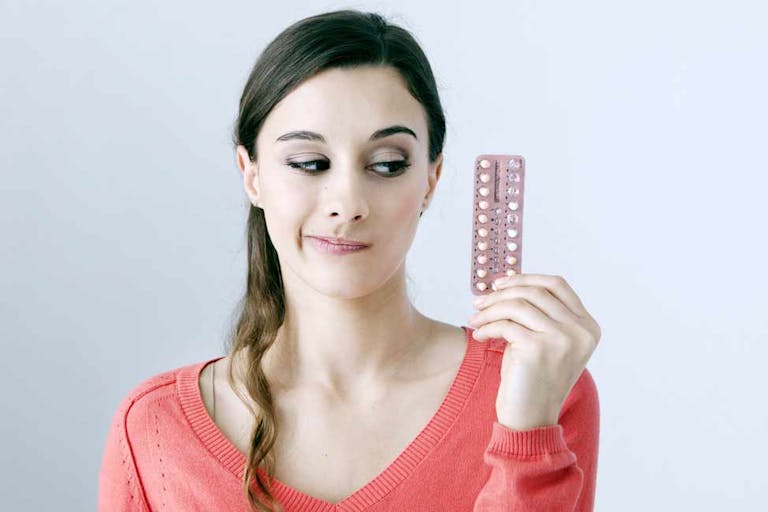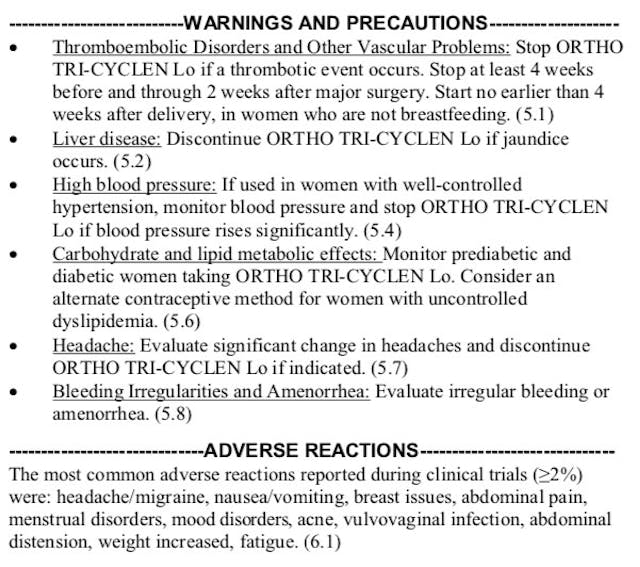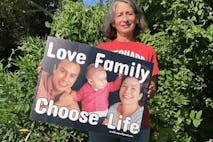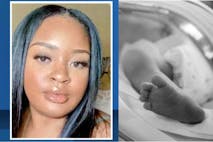
Disability rights groups file lawsuit to stop Delaware assisted suicide law
Angeline Tan
·
Is taking hormonal birth control to get rid of acne really worth it?
Let’s face it: being a teenager is hard. And in those years, appearance seems like everything. Acne is a troublesome part of those years for many of us, sometimes lasting into adulthood. This causes many women to turn to birth control as a “fix” for acne, with the promise of clearer skin. Easy, right? Take this little pill every day, or get a shot, and problem solved! Well, not exactly.
Many women, younger as well as older, have found that taking hormonal birth control (anything that uses hormones, including pills, patches, shots, and even some IUDs) to get rid of acne just isn’t worth the trade-off for all the disturbing side-effects and risks that come with it. Here are some things to consider:
1. Birth control is linked to depression.
I’m not talking about the Monday blues or just some sad feelings. I’m talking about actual, clinical depression. A study of a million women aged 15-34 from Denmark showed a huge increase in risk of depression for women taking hormonal birth control, and teens were the most at risk, showing up to an 80% increased risk for depression. One in four women say they’ve had serious trouble while using hormonal birth control, with some saying it caused anxiety and suicidal thoughts along with depression. One in four might not sound like a lot, but remember… hundreds of millions of women turn to hormonal contraception worldwide, and that adds up to a lot of women who have serious problems with it.
2. Birth control has caused blood clots, strokes, and heart attacks — even in young women.
Hormones in birth control are the culprits causing an increased risk of some nasty side effects or adverse reactions, and many of the newer kinds of birth control have been found to be even more risky. Venous thromboembolism — the scientific name for a blood clot, usually in the leg — is serious, and it can travel to the lungs (pulmonary embolism), which can cause death. This 21-year-old died from hormonal birth control she’d only been taking for a month. This 23-year-old died, too. And this 17-year-old. And these women. And there are other risks. Don’t take my word for it — read the manufacturer’s own inserts. Here’s a sample of one commonly prescribed hormonal contraceptive (Ortho Tri-Cyclen Lo) manufacturer’s listed risks:
Article continues below
Dear Reader,
Have you ever wanted to share the miracle of human development with little ones? Live Action is proud to present the "Baby Olivia" board book, which presents the content of Live Action's "Baby Olivia" fetal development video in a fun, new format. It's perfect for helping little minds understand the complex and beautiful process of human development in the womb.
Receive our brand new Baby Olivia board book when you give a one-time gift of $30 or more (or begin a new monthly gift of $15 or more).

READ: Ten dangers all women should know about hormonal birth control
3. Birth control can increase your risk of breast cancer.
A Danish study of nearly 2 million women showed a 38% increased risk of breast cancer — not just for older women, but for all women who used hormonal birth control for 10 years or more. Ten years might not seem like a long time, but if a teenager gets on birth control at age 16 and stays on it until she’s 26, that means she’s increased her risk.
4. Birth control doesn’t get to the root cause of acne.
Dealing with acne can be difficult. Some dermatologists may recommend oral antibiotics, hormonal birth control, or even treatments that could cause birth defects if a woman becomes pregnant while using them. However, since acne is usually caused by bacterial or hormonal imbalances, you may want to consider seeking other ways to help your body heal from the inside out — perhaps with things like diet change, a healthier lifestyle, and reduction of inflammation.
Speak to your doctor, and if you feel strongly, don’t be pressured to take hormonal birth control for acne as a “quick fix” when its side effects for you may be worse than dealing with acne itself. You have options. Remember… most things aren’t “solved” with a little pill; that little pill is just getting rid of symptoms like acne and isn’t fixing the root cause of the imbalance.
Live Action News is pro-life news and commentary from a pro-life perspective.
Contact editor@liveaction.org for questions, corrections, or if you are seeking permission to reprint any Live Action News content.
Guest Articles: To submit a guest article to Live Action News, email editor@liveaction.org with an attached Word document of 800-1000 words. Please also attach any photos relevant to your submission if applicable. If your submission is accepted for publication, you will be notified within three weeks. Guest articles are not compensated (see our Open License Agreement). Thank you for your interest in Live Action News!

Angeline Tan
·
Analysis
Angeline Tan
·
Analysis
Cassy Cooke
·
Politics
Madison Evans
·
Opinion
Nancy Flanders
·
Investigative
Carole Novielli
·
Human Interest
Kelli Keane
·
Activism
Kelli Keane
·
Politics
Kelli Keane
·
Human Interest
Kelli Keane
·
Abortion Pill
Kelli Keane
·